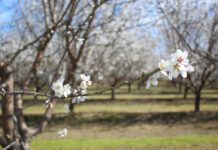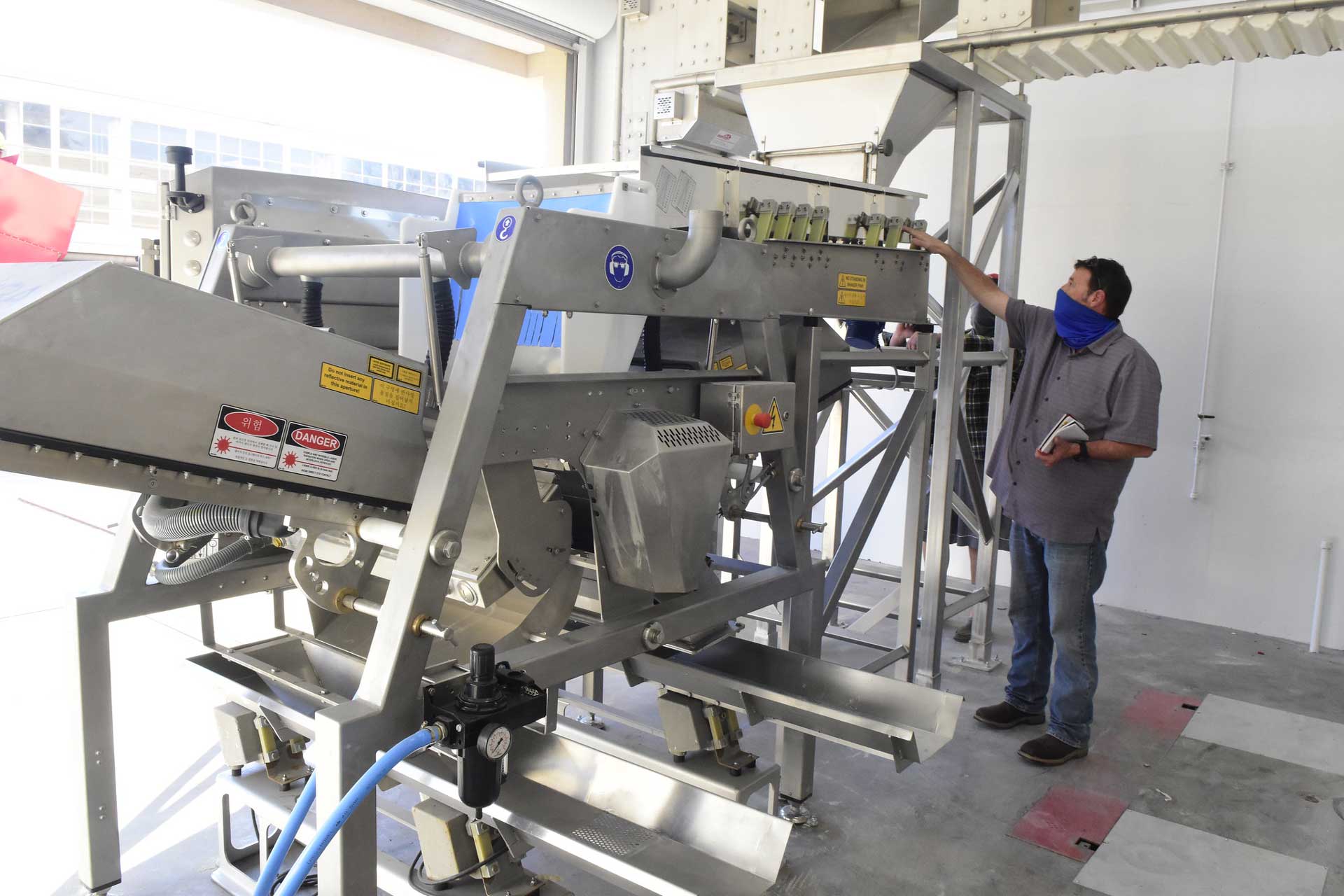
The classroom looks different for each generation. Our grandparents might remember a school filled with dirty chalkboards, hardback textbooks and mechanical pencil sharpeners bolted to the wall. On the other hand, Generation Z is familiar with smartboards, online courses and all things digital learning. There have been extraordinary changes when it comes to the learning experience. One of those changes has been the need for hands-on opportunities. At Fresno State, hands-on learning has taken on a new meaning for students interested in nut processing.
For the past several years, university representatives along with industry leadership have been developing a course for students to learn more about nut processing lines. This course is structured as a four-hour contact per week class, made up of two hours of lecture and two hours of lab. Lecturers will feature people who work in the nut processing industry and local representatives. The hands-on experience comes from the lab portion of the course.
Athanasios “Alex” Alexandrou, Ph.D. is one of many members of the team putting this project together. Alexandrou is a professor of Mechanized Agriculture and serves as the Department Chair for the Department of Industrial Technology in the Jordan College of Agricultural Sciences and Technology at Fresno State. With his expertise in agricultural engineering and vast knowledge of local agriculture, Alexandrou has been an integral part of the team and an advocate for this type of course.
“[This course] is an idea that we are pursuing in my department in the college lately, the last five years or even a little bit more, because we believe that hands-on experiences for students are extremely important for future professional development success,” Alexandrou said.
The lab features a full nut processing line, which is the first time an American university has installed a full line used for a course. The idea was partly inspired by a similar line and packing facility that the university has for the citrus industry. Be that as it may, the need for a class such as this one was identified through industry skill gaps.
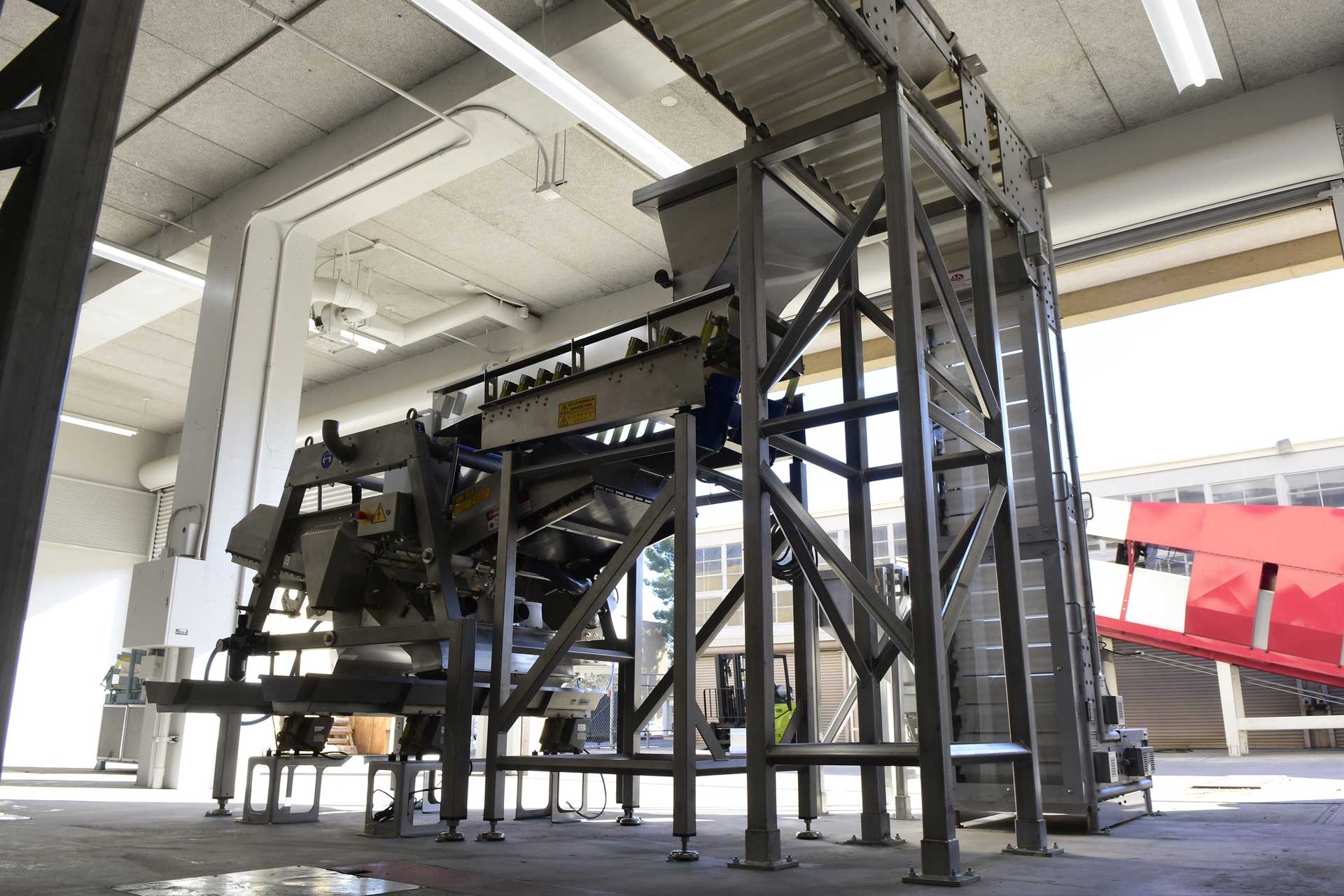
Filling a Need
The Western Agricultural Processing Association was heavily involved with the planning and execution of the project. Located in Fresno, WAPA is a regulatory and legislative organization that advocates for and represents the four major tree nut commodities grown in the state. In December 2018, one of WAPA’s board members came to the association with an issue he was seeing when filling roles for his operations.
Dan Pronsolino is the General Manager at Cortina Hulling and Shelling, which owns and operates both Cortina Hulling and Shelling and Dunnigan Hills Hulling and Shelling. Pronsolino has a lifetime of experience under his belt that was put to use in the early stages of the project. Unfortunately, Pronsolino was finding that many of the recent college graduates applying to nut processing workforce positions did not have a great deal of experience within the processing facilities.
Chris McGlothlin, director of technical services at WAPA, remembers Pronsolino identifying an area as “being critical to the advancement of the industry,” that area being the development of some kind of work experience that better equipped participants with skills necessary for the nut processing and packing workplace. The goal was, and still is, to teach students about the equipment and operations through collaboration with other industry leadership.
“We thought that it would be a no brainer to go straight to the university in our backyard and work with them on something,” McGlothlin said. “A class or just kind of an introduction for these students to be able to get their hands dirty with the type of equipment that they would find, and give them an introduction to the business, to the industry. Then have those students, if they’re interested in it, be able to make those contacts with industry representatives to find employment opportunities.”
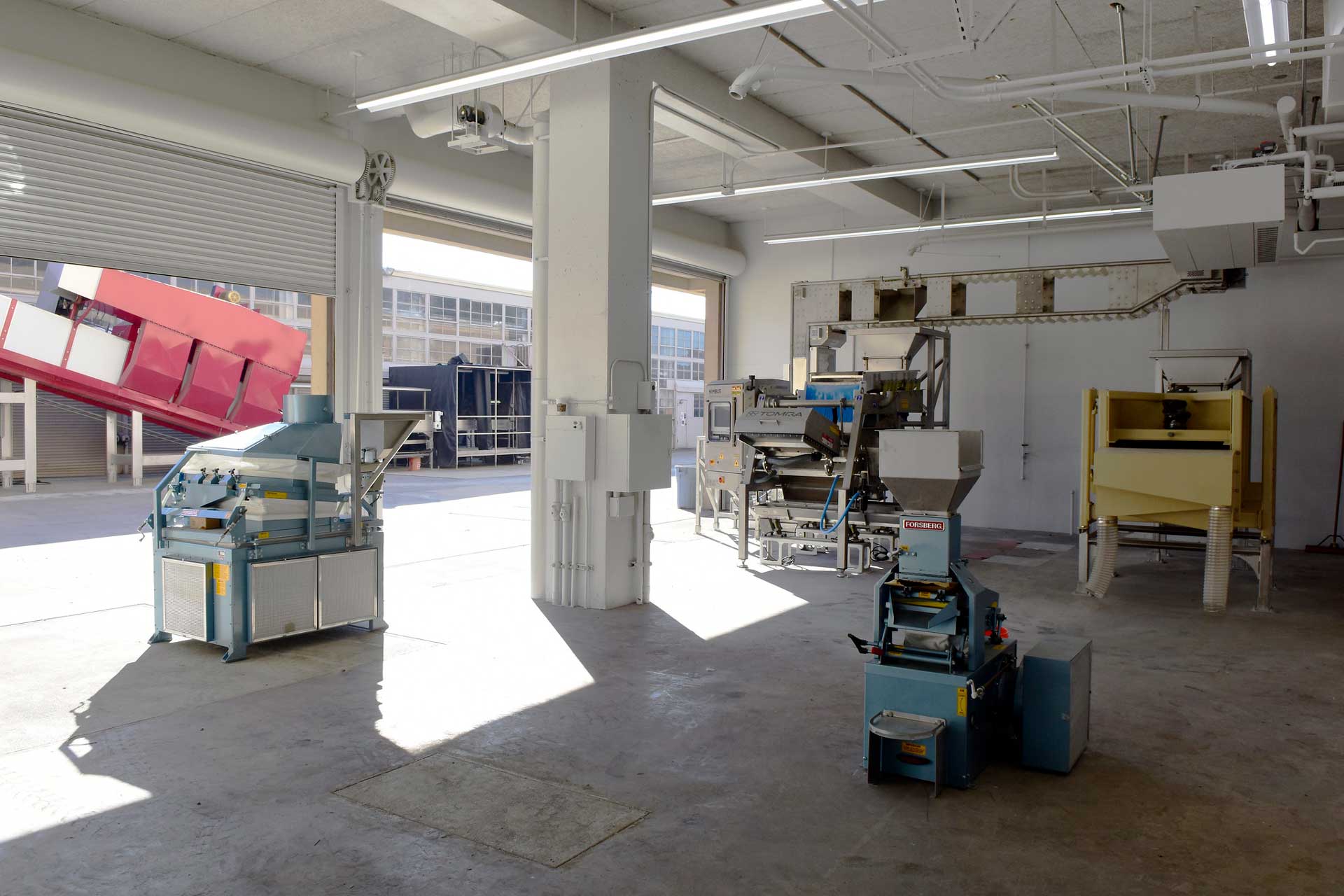
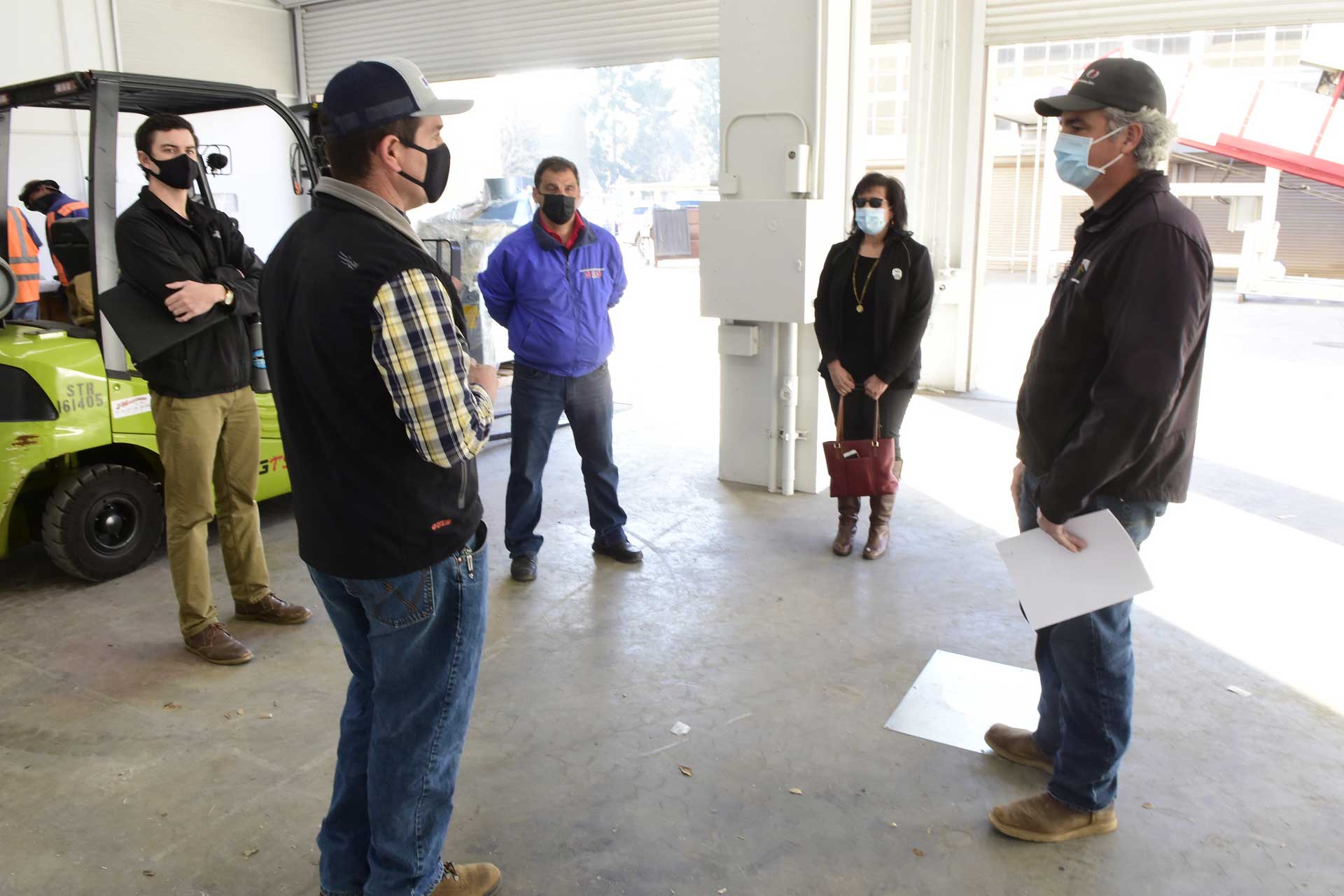
Excitement from Industry
Once the idea was set in motion, there was no stopping the team. They began working on securing donations and equipment. However, there were many obstacles they had to overcome. From the COVID-19 pandemic to spacing issues to university protocols, it took a little while for the ball to get rolling. In the meantime, Pronsolino and others worked with vendors to get equipment in the lab. With so much vendor support, Pronsolino said they had more materials donated than they had space for.
“The vendors were so excited about [the lab] because they’re all starving for people just the same,” Pronsolino said. “The vendors were all over it. It was not difficult to get donations at all.”
The full line of equipment was unveiled April 1, 2022. Gary Dunn, director of capital projects at Wonderful Pistachio and Almonds, was a driving force in installing the machinery. Dunn has 27 years of experience with Wonderful Pistachio and Almonds, and much of that is in processing, equipment design and installation. Although it is a complete nut processing line, the pieces are separated so that students can get a closer look at each piece of machinery and conceptualize the process more efficiently.
“You know, for the students, it’s nice to know what gravity separation is or what color sorting is or what sizing is and how all that stuff works,” Dunn said. “So, all the equipment we have in there is basically set up to run as an individual piece of equipment. You put the product in one side, it comes out in maybe two or three different streams based on what you’re trying to do.”
The facility is home to six pieces of equipment. Dunn says their TOMRA Nimbus 640 color sorter is the most technologically advanced machine in the lab. Other machinery includes a Nolin gyratory sizer, Forsberg TKV-25 Gravity Deck, Forsberg G2 Destoner, AB FAB aspirator and QCIFY automated quality grading machine. In addition to the processing machinery, the lab has some pieces of auxiliary equipment that support the line.
“I hire a lot of engineers, and what I’m really looking forward to is seeing what this will yield for us in the future,” Dunn said. “For students, even if they can come through this and understand what basic processing equipment is for the industry, it’s going to help the industry as a whole.”
The nut processing line course is in its third trial semester. Though enrollment has been controlled by the department thus far, it will soon open as an upper-level course with no prerequisites to all university students. Alexandrou says that the overarching goal of this course is to provide the nut processing industry with employable workers who have the right skill set for the job.
“We envision ourselves in a very close relationship with the local industry,” he said. “Trying to satisfy their educational needs to the best of our abilities. We are very happy because we can feel their support and their excitement.”









